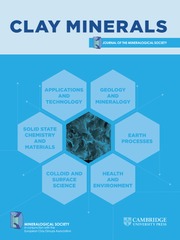Article contents
The influence of binders for the pelletization of fly ash zeolites on sulfur dioxide sorption properties
Published online by Cambridge University Press: 03 February 2020
Abstract
Fly ash zeolites are economically and ecologically attractive alternatives to synthetic and natural zeolites. Their use as sulfur dioxide sorbents is one of the possible applications of these materials. During the process of fly ash zeolite synthesis, a light powder is formed, which is not acceptable in practical applications due to technical problems, such as a marked drop in pressure, diffusion limits, hydraulic resistance, clogging in the packed beds and the possibility of losing a bed. It is therefore necessary to perform a pelletization process. Thickening of the material during pelletization influences sorption capacity negatively due to diffusing limitations, while the lack of an additional binder may result in a material of low mechanical durability. In this study, pressure pelletization experiments with fly ash zeolite were performed. Binders were selected on the basis of economic considerations as well as their potential to exert a positive influence on the sorption properties of the produced pellets. Cyclic sorption experiments were conducted (on sulfur dioxide) in which one zeolite powder sample was subjected to pelletization without a binder and another sample was subjected to the process with selected binders added. The results of the experiments were then analysed to ascertain the influence of the pelletization process on sulfur dioxide sorption capacity.
- Type
- Article
- Information
- Copyright
- Copyright © Mineralogical Society of Great Britain and Ireland 2020
Footnotes
Editor: George Christidis
References
- 5
- Cited by


